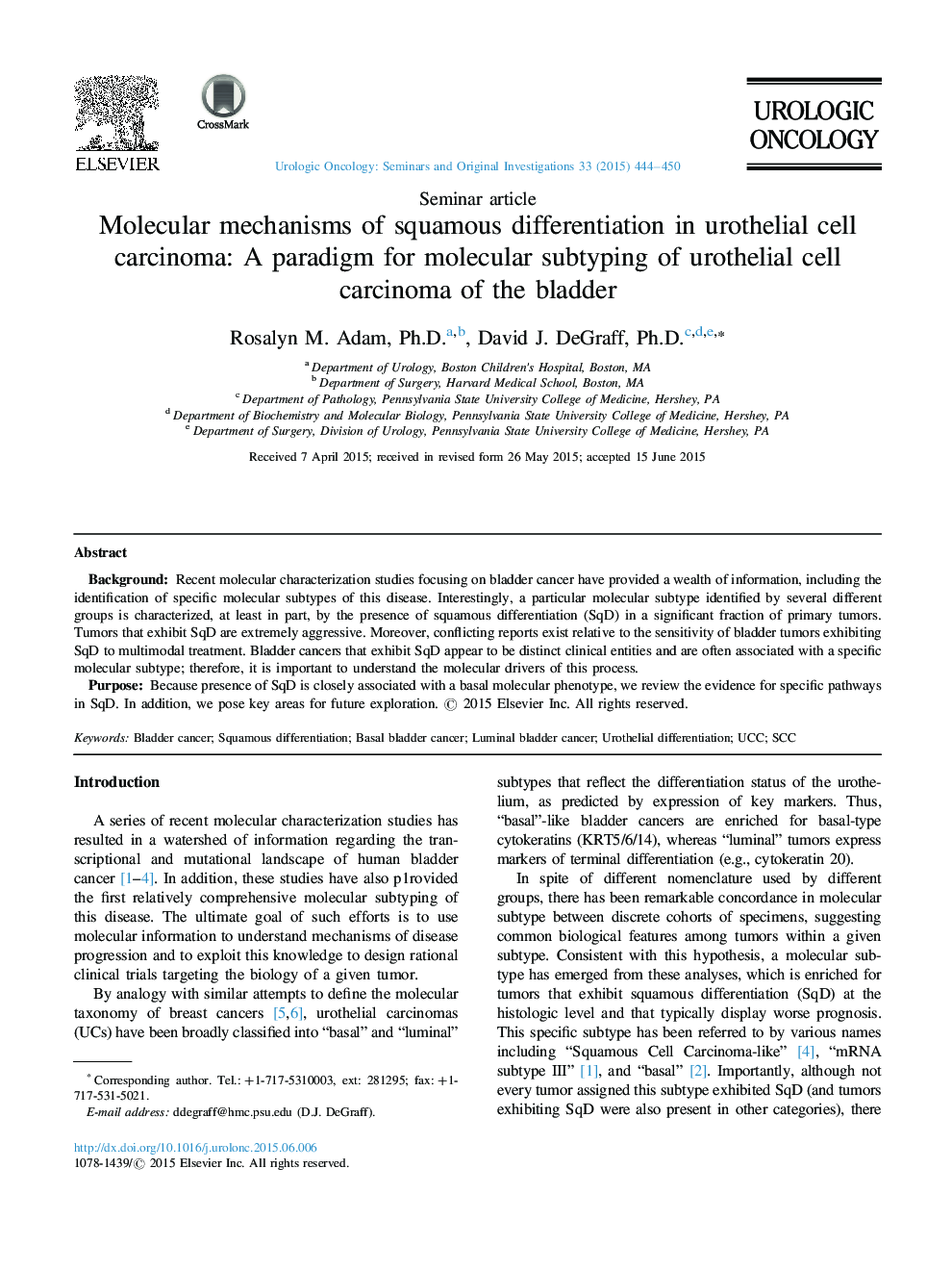| Article ID | Journal | Published Year | Pages | File Type |
|---|---|---|---|---|
| 3999465 | Urologic Oncology: Seminars and Original Investigations | 2015 | 7 Pages |
•A significant number of bladder cancer tumors identified as belonging to the basal molecular subtype exhibit an increased frequency of squamous differentiation, suggesting links between gene expression and histologic differentiation in a subset of tumors.•Presence of squamous differentiation and/or a basal molecular subtype may have important implications for response to therapy, suggesting a greater understanding of associated pathways is essential. Therefore, we review the mechanisms identified as potentially playing a role in squamous differentiation, and interpret these findings relative to recent molecular characterization studies.•Specifically, we review evidence of an association between altered expression and/or activity of members of the steroid hormone receptor family, components of the EGFR signaling pathway, and specific transcriptional regulators (FOXA1, TP63 and NOTCH) and squamous differentiation.
BackgroundRecent molecular characterization studies focusing on bladder cancer have provided a wealth of information, including the identification of specific molecular subtypes of this disease. Interestingly, a particular molecular subtype identified by several different groups is characterized, at least in part, by the presence of squamous differentiation (SqD) in a significant fraction of primary tumors. Tumors that exhibit SqD are extremely aggressive. Moreover, conflicting reports exist relative to the sensitivity of bladder tumors exhibiting SqD to multimodal treatment. Bladder cancers that exhibit SqD appear to be distinct clinical entities and are often associated with a specific molecular subtype; therefore, it is important to understand the molecular drivers of this process.PurposeBecause presence of SqD is closely associated with a basal molecular phenotype, we review the evidence for specific pathways in SqD. In addition, we pose key areas for future exploration.
